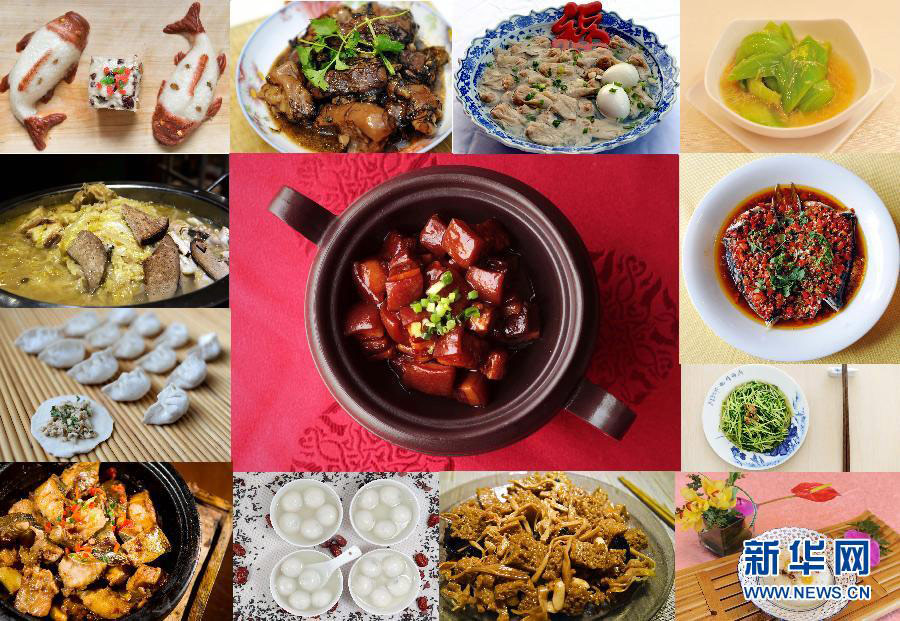Top 10 food customs in China
 0 Comment(s)
0 Comment(s) Print
Print E-mail China.org.cn, March 25, 2011
E-mail China.org.cn, March 25, 2011
China has so many distinctive food customs. It is not only the flavors of Chinese food but also the good wishes behind them that appeal to people around the world.

The night before the Spring Festival is traditionally called "New Year's Eve". Several special traditions are associated with the New Year's Eve feast. First, it is a time when the entire family gathers together. Whether the meal is cooked and eaten at home or enjoyed at a restaurant, all members of the family, old and young, male and female, attend the feast. A place setting is prepared at the table for any family members who are unable to get home for the holidays, symbolically filling their place in the family circle. Because it serves to bring the family together, the New Year's Eve feast is also called the Reunion Feast.
Second, the New Year's Eve feast includes a wide variety of delicious foods and drinks. After working hard all year, people can finally relax with their families and enjoy life. In some regions, it is traditional to drink a special kind of liquor, tushujiu, steeped with herbs, which is said to provide protection against disease in the coming year.
Third, the food served at the New Year's Eve feast has rich symbolic meaning. The dishes definitely include fish and chicken, because their Chinese names are homonyms for "abundance" and "good luck." In Taiwan, it is traditional to eat fish spheres (like meatballs, but made out of fish), whose round shape symbolizes the family circle and family reunions. The name for Chinese leek is a homonym for "a long time", so dishes made with Chinese leeks are eaten to symbolize long life. Turnips are another popular New Year's dish, because their name in Fujian dialect is a homonym for "good omen."
And of course, on New Year's Eve everyone must eat jiaozi, boiled dumplings.
Go to Forum >>0 Comment(s)







